Granite countertops are a popular choice for kitchens and bathrooms due to their durability, beauty, and resistance to scratches and heat. While granite is relatively low-maintenance, proper cleaning is essential to preserve its appearance and longevity. Cleaning granite countertops with alcohol is a common method used to remove stains, disinfect the surface, and restore shine. However, it’s essential to use alcohol properly and avoid potential pitfalls to prevent damage to the granite surface.
Benefits of Cleaning with Alcohol: Using alcohol to clean granite countertops offers several benefits. Alcohol is effective at removing grease, grime, and stains from the surface without leaving residue behind. It also acts as a disinfectant, killing bacteria and germs that may be present on the countertop.
Types of Alcohol: Isopropyl alcohol, also known as rubbing alcohol, is commonly used to clean granite countertops. It is readily available, inexpensive, and effective at cutting through grease and grime. Ethanol, another type of alcohol, can also be used for cleaning granite countertops but may be more expensive and less readily available.
Precautions When Using Alcohol: While alcohol can be an effective cleaner for granite countertops, it’s essential to use it properly to avoid damaging the surface. Always dilute the alcohol with water to prevent it from stripping the protective sealant on the granite. Use a soft cloth or sponge to apply the diluted alcohol solution to the countertop gently.
Removing Stains: Alcohol can be particularly effective at removing stains from granite countertops, including water spots, grease, and food stains. To remove stains, soak a soft cloth or sponge in diluted alcohol and gently scrub the stained area. Rinse the area with water and dry it thoroughly to prevent water spots.
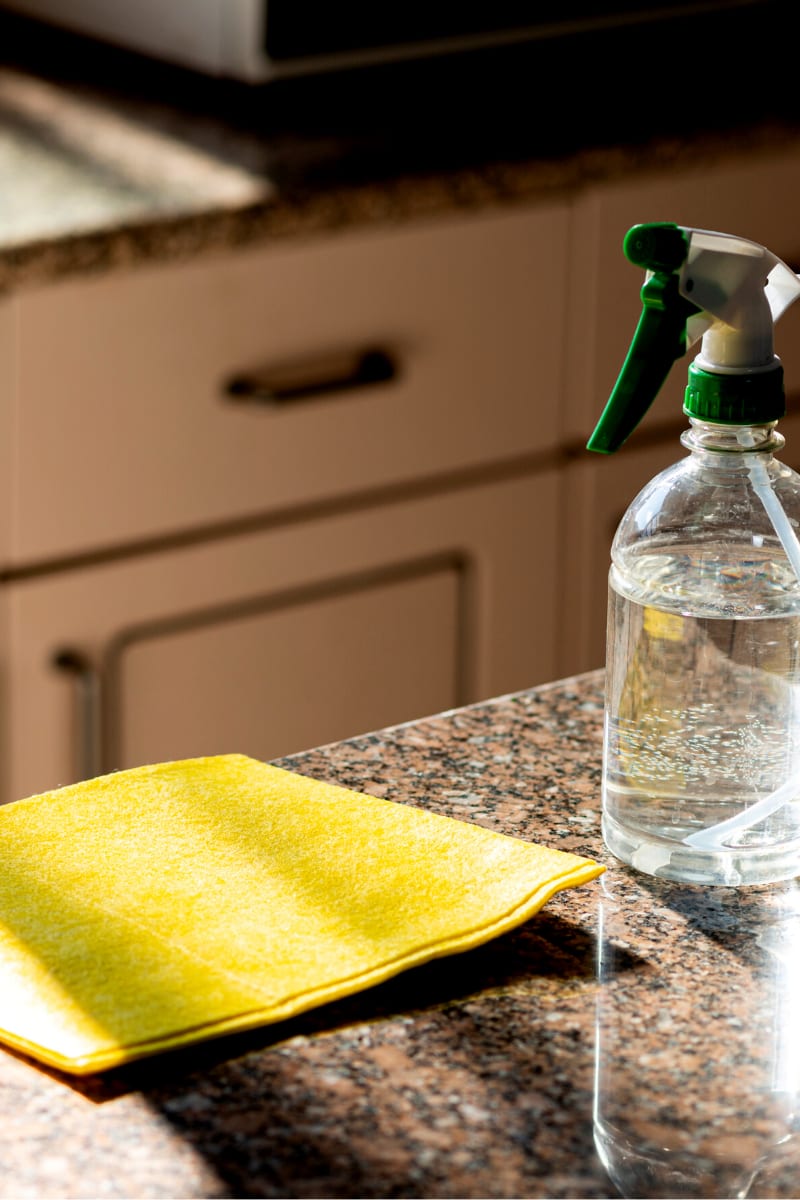
Disinfecting the Surface: Alcohol is an excellent disinfectant and can help kill bacteria and germs on granite countertops. To disinfect the surface, spray or wipe diluted alcohol onto the countertop and let it sit for a few minutes before wiping it clean with a damp cloth. This helps prevent the spread of germs and keeps the countertop hygienic.
Restoring Shine: Alcohol can also help restore the shine to granite countertops by removing built-up residue and oils that can dull the surface over time. After cleaning and disinfecting the countertop with diluted alcohol, buff the surface with a soft, dry cloth to restore its natural shine.
Avoiding Damage: While alcohol is generally safe for cleaning granite countertops, it’s essential to avoid using undiluted alcohol or harsh cleaning agents that can damage the surface. Strong chemicals such as bleach, ammonia, or acidic cleaners should be avoided, as they can strip the protective sealant and cause etching or discoloration.
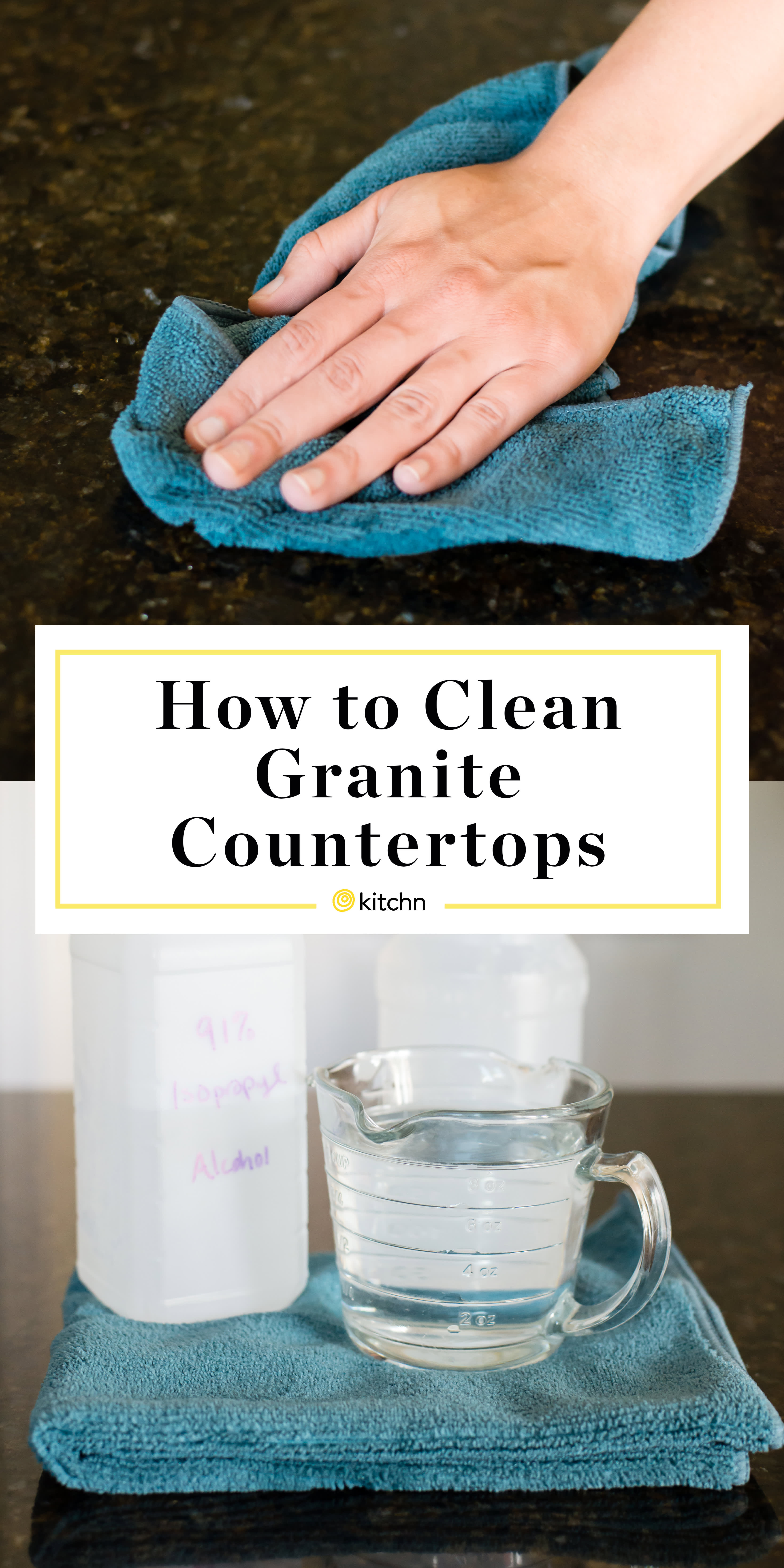
Testing in an Inconspicuous Area: Before using alcohol or any cleaning product on your granite countertop, it’s a good idea to test it in an inconspicuous area to ensure it doesn’t cause any damage or discoloration. Apply a small amount of the cleaning solution to a hidden area of the countertop and wait a few minutes to see if there are any adverse reactions.
Routine Cleaning: In addition to using alcohol for deep cleaning and stain removal, regular maintenance is essential to keep granite countertops looking their best. Wipe down the countertop with a soft cloth or sponge and mild dish soap and water after each use to remove surface dirt and spills.
Avoiding Abrasive Materials: When cleaning granite countertops, avoid using abrasive materials such as steel wool, abrasive sponges, or harsh scrub brushes, as they can scratch the surface and dull the finish. Stick to soft cloths or sponges to prevent damage.
Drying Thoroughly: After cleaning granite countertops with alcohol or any other cleaning solution, it’s essential to dry the surface thoroughly to prevent water spots and streaks. Use a clean, dry cloth to wipe away any excess moisture and buff the countertop to restore shine.
Sealing Regularly: To protect the granite surface and maintain its beauty, it’s crucial to seal the countertop regularly. Sealing helps prevent staining and water penetration and makes the countertop easier to clean and maintain. Follow the manufacturer’s recommendations for sealing frequency and application.
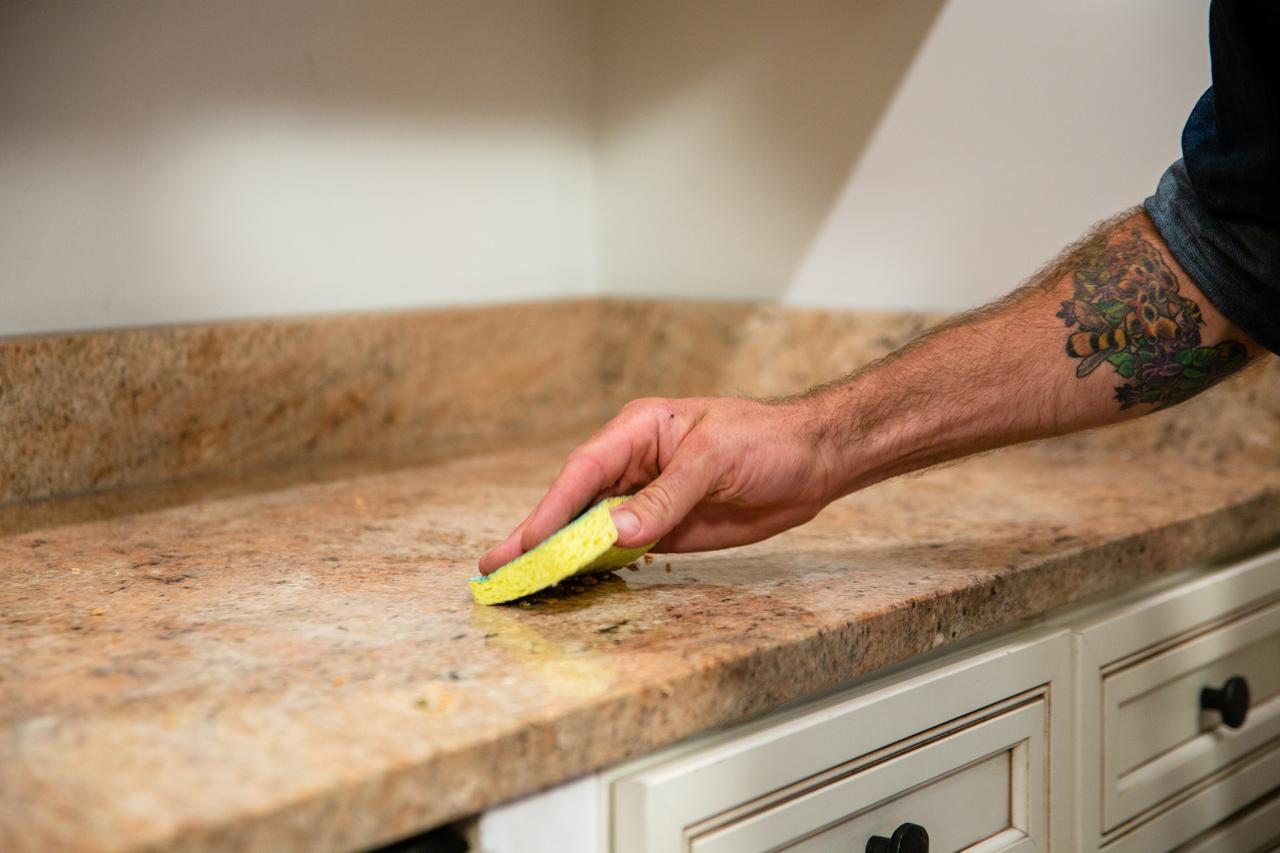
Avoiding Standing Water: Standing water on granite countertops can cause water spots and streaks, as well as damage the protective sealant. Wipe up spills promptly and avoid leaving wet dishes or towels on the countertop for an extended period.
Using Cutting Boards and Trivets: To prevent scratching and heat damage to granite countertops, always use cutting boards and trivets when preparing food or placing hot pots and pans on the surface. This helps protect the granite from damage and prolongs its lifespan.
Professional Maintenance: If your granite countertop requires deep cleaning, stain removal, or resealing, consider hiring a professional stone care specialist or countertop installer to perform the necessary maintenance. Professionals have the knowledge, tools, and experience to restore and maintain granite countertops safely and effectively.
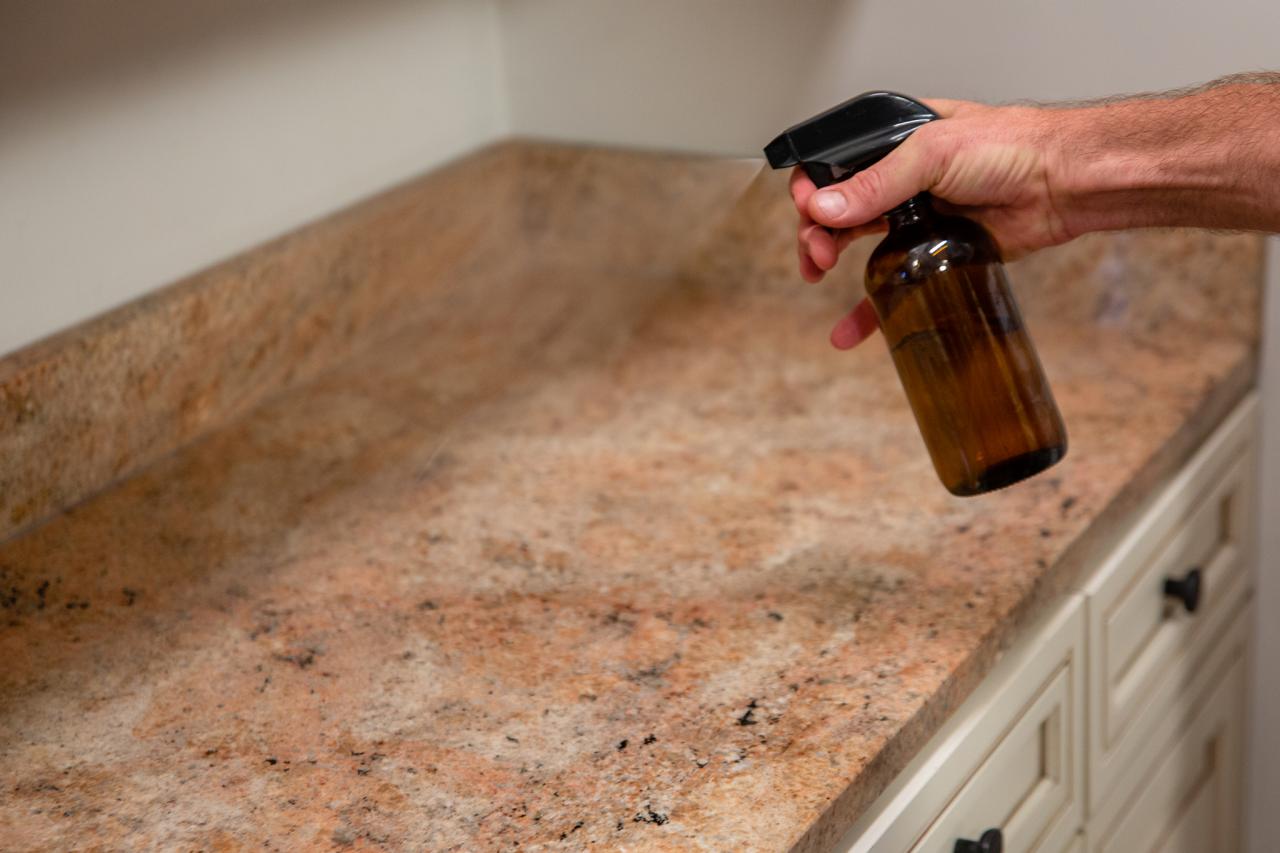
Is it safe to use alcohol to clean granite countertops?
Yes, it is safe to use alcohol to clean granite countertops when diluted with water. However, it’s essential to avoid using undiluted alcohol or harsh cleaning agents that can damage the surface.
Can I use vinegar instead of alcohol to clean granite countertops?
While vinegar is effective at removing grease and grime, it is acidic and can damage the protective sealant on granite countertops. It’s best to use alcohol diluted with water or a pH-neutral cleaner specifically designed for granite surfaces.
Will alcohol damage the sealant on my granite countertop?
Alcohol can strip the protective sealant on granite countertops if used undiluted or in high concentrations. It’s essential to dilute the alcohol with water and use it sparingly to avoid damaging the sealant.
How often should I clean my granite countertop with alcohol?
It’s not necessary to clean granite countertops with alcohol regularly unless stains or disinfection are needed. For routine maintenance, wipe down the countertop with mild dish soap and water after each use and reseal the surface as needed.
Can alcohol remove water spots from granite countertops?
Yes, alcohol can be effective at removing water spots from granite countertops. Dilute alcohol with water and gently scrub the affected area to remove water spots and restore the countertop’s shine.

The No-Fear Way to Cleaning Granite Countertop Traditional
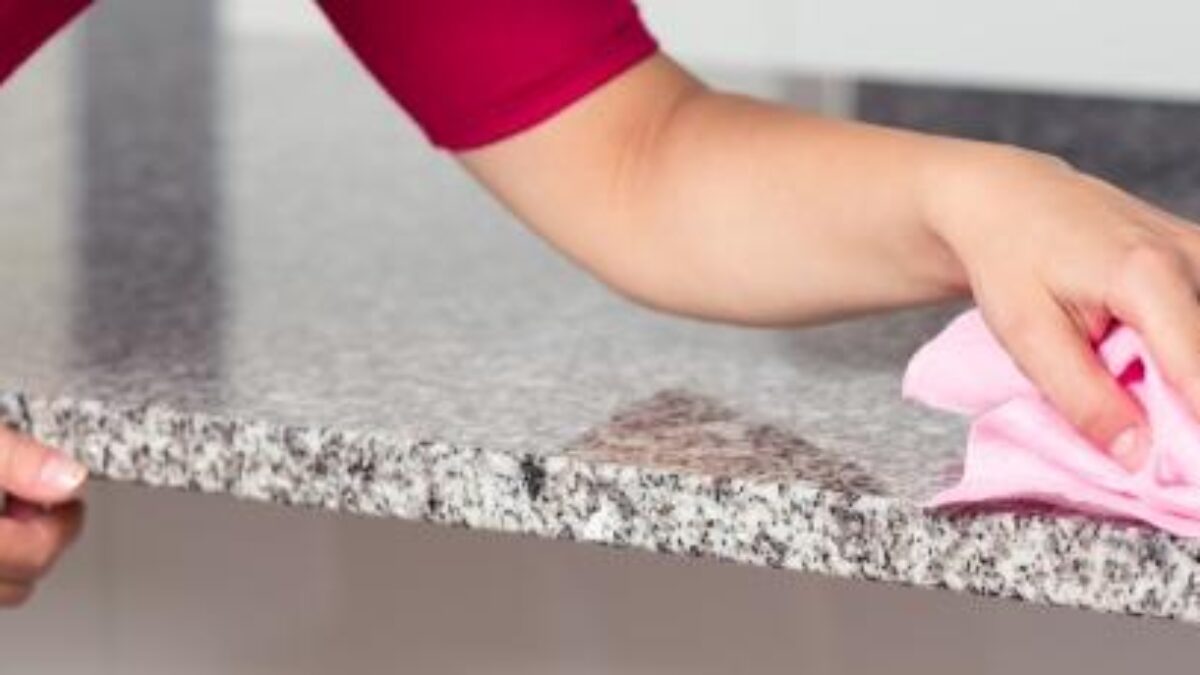
How To Clean and Disinfect Granite Countertops Kitchn
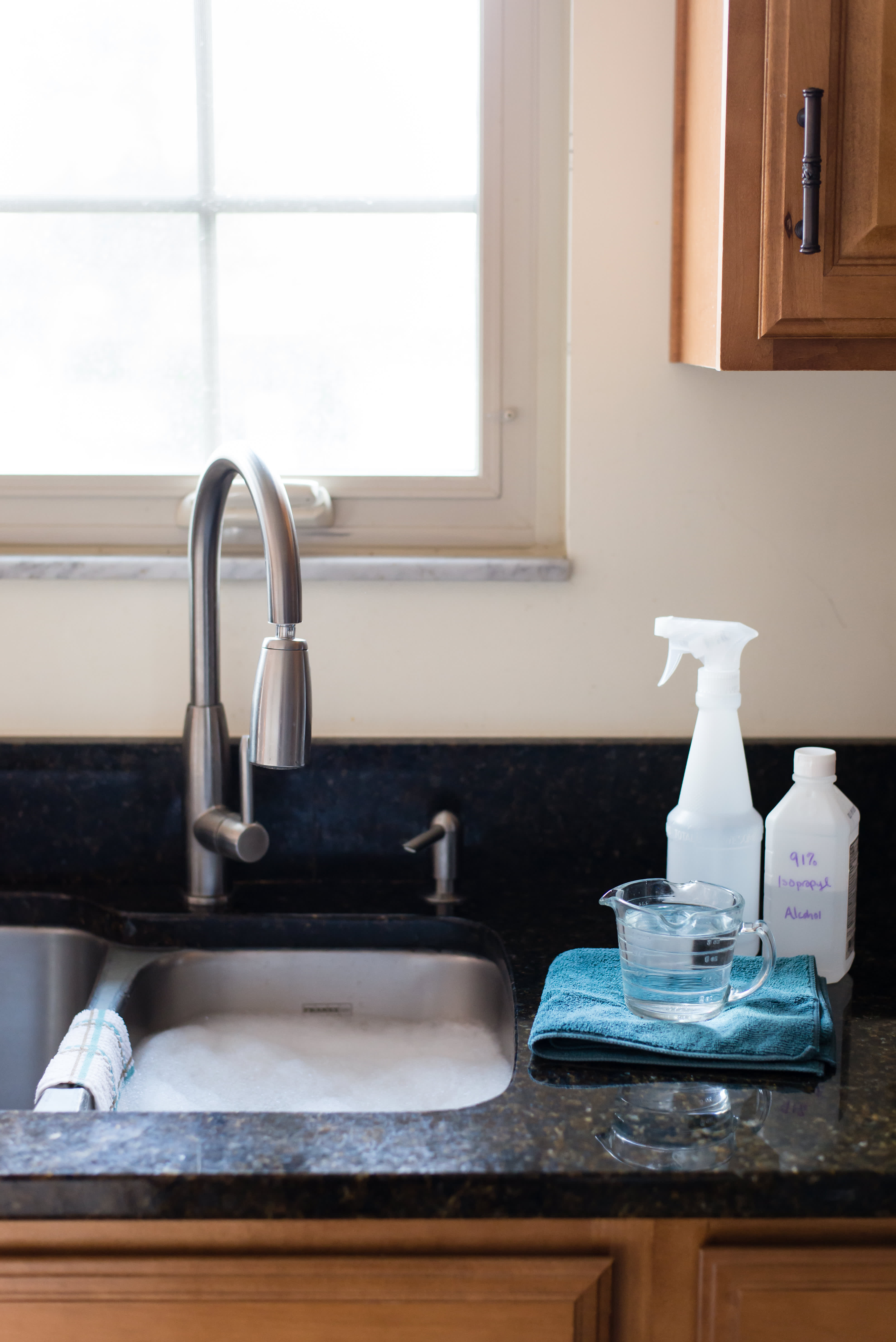
How to Clean Granite Countertops (Properly) – Home Stratosphere

Related articles:
- Granite Countertops With White Cabinets
- Granite Countertop Design Ideas
- Granite Countertops For Small Kitchens
- Granite Countertop Repair
- Granite Countertops For Outdoor Kitchens
- Granite Countertop Care Guide
- Granite Countertop Paint DIY
- Granite Countertop With Backsplash Ideas
- Granite Countertop Color Selection
- DIY Granite Countertop Installation